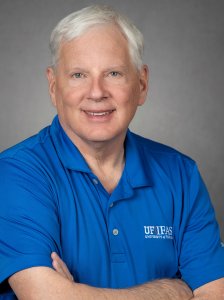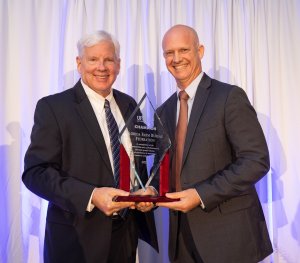March FloridAgriculture eNewsletter
 By J. Scott Angle
By J. Scott Angle
[email protected]
@IFAS_VP
When you use fertilizer, would you rather have science or politics as the guide for how much?
I know how your president comes down on this. Because of his testimony in Tallahassee last month, members of the Florida Senate Agriculture Committee do, too.
“We need good, solid scientific data generated by our land-grant institution,” Smith told the committee (he starts at 22:07 here). So not just science, but land-grant science. Because UF/IFAS, as your land-grant institution, gathers data so it can address your challenges.
It’s been that way for longer than any of us can remember. A few days after Smith went to Tallahassee, I was in Belle Glade to mark the centennial of the Everglades Research and Education Center. I used the occasion to highlight data that shows that over the past quarter century, local growers using farming practices guided by UF/IFAS science has cut the nutrient loads in the water coming off those farms by more than half.
That’s the kind of success story we need to replicate statewide. The timing is right, as water quality continues as one of the state’s top political priorities. President Smith’s validation of UF/IFAS science makes it more likely that evidence, not intuition, will shape the policies on how farmers fertilize.

“I just want to say that supporting funding for UF/IFAS best management practices fertilizer rate application studies is imperative. Our members and producers support sound science and its implementation,” Smith told the committee.
About 18 months ago, we started research projects across the state and in various commodities. Some of our fertilization recommendations are decades old. It’s a huge and expensive task to come up with fertilizer recommendations for so many crops in so many locations with so many different climates and soil conditions.
Last year, with the help of the Farm Bureau’s advocacy, we received substantial state support to tackle as much of this as we can. This can’t be done in a year, though, so we’re seeking a continuation of that support, and again, the Farm Bureau is there championing science.
President Smith’s endorsement of science is so important because it reflects a political reality. Lawmakers want to know that there’s a return on investment from their spending. They heard that there is from the leader of 130,000+ members of the state’s agriculture community and a longtime farmer himself.
I have no crystal ball that tells me whether funding for fertilizer rate research or any other agricultural science will get approved in the legislative session that just started. But it’s gratifying to know Farm Bureau leaders see science as crucial to agriculture’s success.
Scott Angle is the University of Florida’s Senior Vice President for Agriculture and Natural Resources and leader of the UF Institute of Food and Agricultural Sciences (UF/IFAS).
